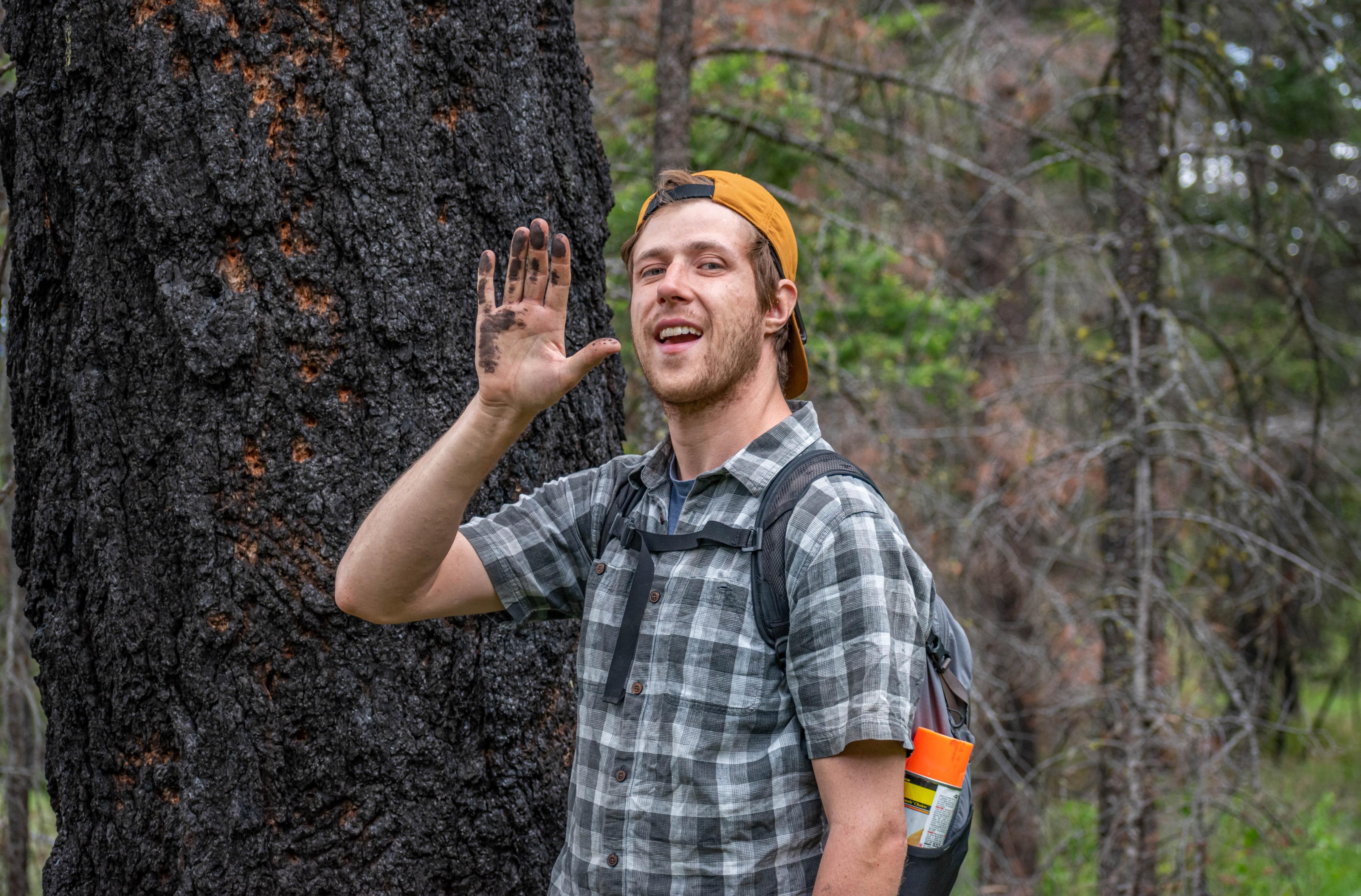Mike Stefanuk
As a Public Scholar I feel empowered and supported to explore a more holistic perspective on the complex topic of wildfire research through meaningful community partnership.
Research description
Wildfire has emerged as a complex and challenging global problem, with increasingly damaging wildfires causing significant ecological and societal impacts. Paradoxically, a century of active wildfire suppression has allowed British Columbia’s dry forests to grow denser and more homogeneous, fuelling recent large aggressive wildfires. This is a departure from the historically mixed fire regime of predominantly examining fires including Indigenous cultural burns. This research predominantly examines ways that forests and wildfire have changed because Indigenous fire stewardship, including cultural burns, were criminalized. This research is in partnership with Stswecem’c Xget’tem First Nation, whose use of beneficial cultural burns historically reduced wildfire risk across their traditional territory in the Cariboo region of interior British Columbia. We will use tree-rings to reconstruct historical wildfire events, and will use computer simulation models to compare wildfires with historical Stswecem'c Xget'tem stewardship, with modern fire-prone forests and with potential future stewardship and climate change. We will collaborate on interpreting results within the context of place and culture. We aim to provide culturally-informed and place-based recommendations to ongoing forest and fire management planning efforts and support coexistence with fire.
What does being a Public Scholar mean?
When I set out on my PhD journey, I initially proposed an entirely scientific thesis aligned with the traditional values and concept of a PhD. But as I learned more from my partners it became clear that a purely scientific approach would be insufficient to answer the questions we were most interested in. At a basic level, I grew up in forests that are quite different from the research area and do not have an innate understanding of what it is like to live with wildfire. Now as a Public Scholar I feel empowered and supported to interface with the Indigenous knowledge of my partners and more holistically address the complex topic of wildfire research through our community partnership.
In what ways do you think the PhD experience can be re-imagined with this Initiative?
Ideally research should be meaningful for people who are affected by the subject of study, as well as for the academic community. I am excited to take part in public scholarship so that I as a researcher can be responsive to my collaborator’s knowledge, interests, and priorities. Traditionally, the PhD experience involves learning and thinking deeply within a discipline. Through the PSI I feel supported to expand on that tradition through community partnership and increase the quality of my scholarship and meaningfulness for community partners as a result.
How do you envision connecting your PhD work with broader career possibilities?
I hope to build skills, relationships, and perspective during my PhD to have a positive impact on community wildfire management through future research and work directly with communities. I believe that effective community engagement will be especially important to design wildfire management strategies that are suited for local ecology, culture, and priorities.
How does your research engage with the larger community and social partners?
This research is in partnership with the Stswecem’c Xget’tem First Nation, whose communities have faced a direct threat by wildfire repeatedly in recent years. We negotiated terms of respectful and reciprocal research, collaboration, and dissemination practices before this research began and established a legal Indigenous Collaborative Research Protocol Agreement. I aim to produce robust scientific knowledge that Stswecem’c Xget’tem can use to support their stewardship and governance goals as they collaborate with government agencies, forest industry and other communities in dry forests.
Why did you decide to pursue a graduate degree?
Before I started a graduate degree, I was inspired by research that helped people affected by the drastic shifts in the natural environment caused by climate change. Pursuing graduate studies has allowed me to develop the skills to take a robust look at issues at the climate-human interface and share that knowledge with people who can benefit from it.
Why did you choose to come to British Columbia and study at UBC?
The Faculty of Forestry and UBC host a fantastic group of multi-disciplinary researchers with world-class experts in wildfire and forest ecology. I was eager to learn in a place with a diverse community that would broaden and challenge my perspective. Support programs offered by UBC, including the Public Scholars Initiative, gave me optimism that my PhD experience could be broad and allow for me to make work meaningful throughout the process. Living in the mountains is a nice bonus.





